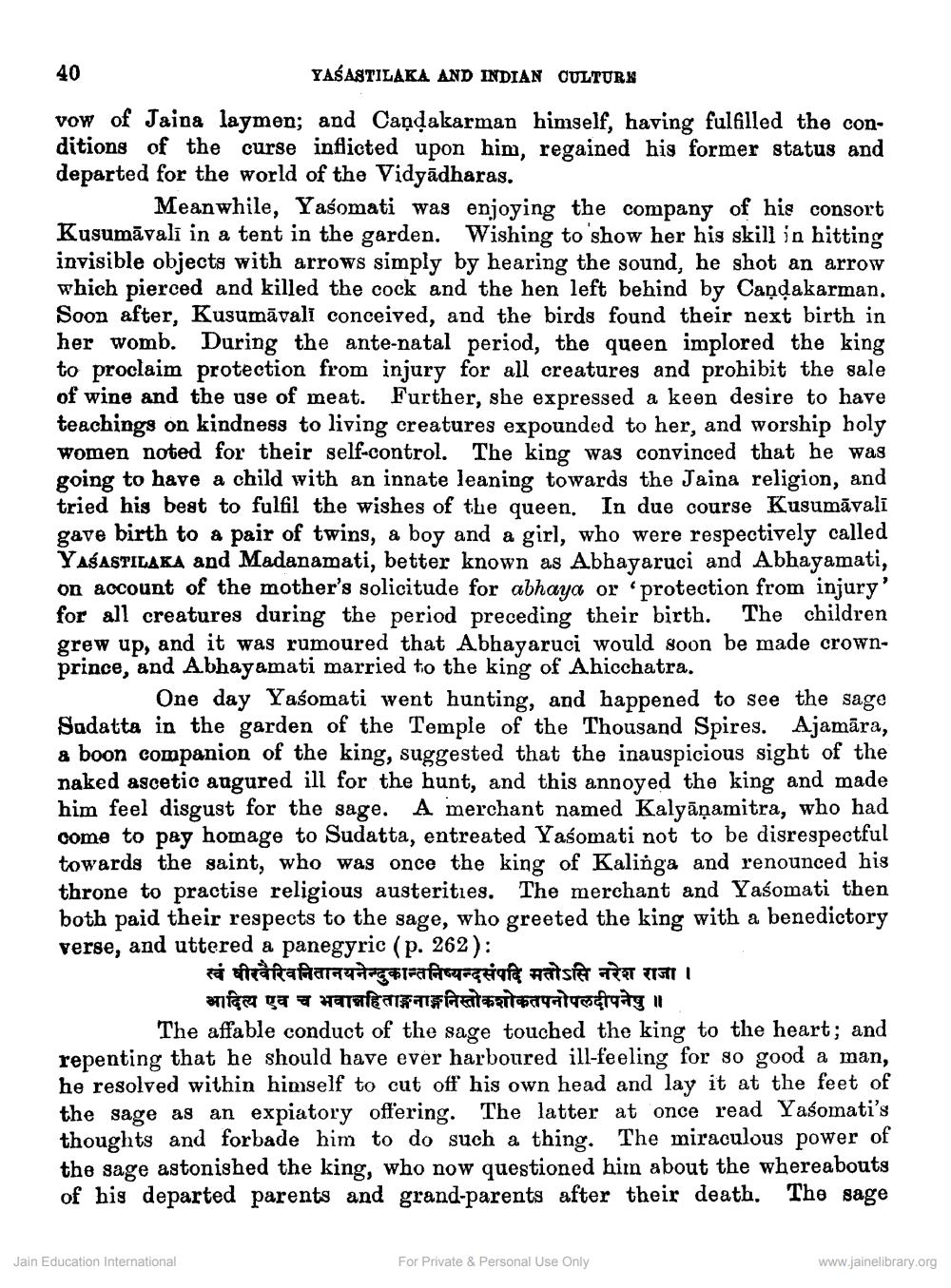________________
40
YASASTILAKA AND INDIAN CULTURY
vow of Jaina laymen; and Caņdakarman himself, having fulfilled the conditions of the curse inflicted upon him, regained his former status and departed for the world of the Vidyādharas.
Meanwhile, Yasomati was enjoying the company of his consort Kusumāvali in a tent in the garden. Wishing to show her his skill in hitting invisible objects with arrows simply by hearing the sound, he shot an arrow which pierced and killed the cock and the hen left behind by Caņdakarman. Soon after, Kusumāvali conceived, and the birds found their next birth in her womb. During the ante-natal period, the queen implored the king to proclaim protection from injury for all creatures and prohibit the sale of wine and the use of meat. Further, she expressed a keen desire to have teachings on kindness to living creatures expounded to her, and worship holy women noted for their self-control. The king was convinced that he was going to have a child with an innate leaning towards the Jaina religion, and tried his best to fulfil the wishes of the queen. In due course Kusumavalī gave birth to a pair of twins, a boy and a girl, who were respectively called YASASTILAKA and Madanamati, better known as Abhayaruci and Abhayamati, on account of the mother's solicitude for abhaya or protection from injury for all creatures during the period preceding their birth. The children grew up, and it was rumoured that Abhayaruci would soon be made crownprince, and Abhayamati married to the king of Ahicchatra.
One day Yaśomati went hunting, and happened to see the sage Sadatta in the garden of the Temple of the Thousand Spires. Ajamāra, a boon companion of the king, suggested that the inauspicious sight of the naked ascetic angured ill for the hunt, and this annoyed the king and made him feel disgust for the sage. A merchant named Kalyāņamitra, who had come to pay homage to Sudatta, entreated Yasomati not to be disrespectful towards the saint, who was once the king of Kalinga and renounced his throne to practise religious austerities. The merchant and Yaśomati then both paid their respects to the sage, who greeted the king with a benedictory verse, and uttered a panegyric (p. 262):
स्वं धीरवैरिवनितानयनेन्दुकान्तनिष्यन्दसंपदि मतोऽसि नरेश राजा ।
आदित्य एव च भवानहिताङ्गनाङ्गनिस्तोकशोकतपनोपलदीपनेषु ॥
The affable conduct of the sage touched the king to the heart; and repenting that he should have ever harboured ill-feeling for so good a man, he resolved within himself to cut off his own head and lay it at the feet of the sage as an expiatory offering. The latter at once read Yašomati's thoughts and forbade him to do such a thing. The miraculous power of the sage astonished the king, who now questioned him about the whereabouts of his departed parents and grand-parents after their death. The sage
Jain Education International
For Private & Personal Use Only
www.jainelibrary.org




